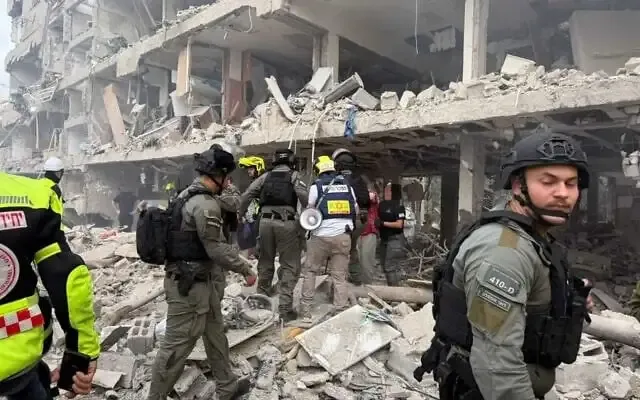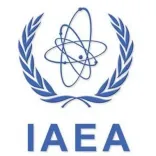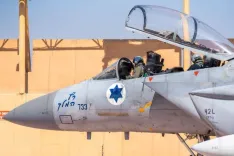What Recent Missile Attacks Did Iran Launch on Israel After US Strikes?

Synopsis
Key Takeaways
- Iran launched over 30 missiles at Israel in retaliation for US strikes.
- 16 individuals were injured, raising concerns over missile defense systems.
- The US strikes targeted key nuclear facilities in Iran.
- Iran warned of serious consequences following the US actions.
- Regional stability is at risk due to escalating tensions.
Tel Aviv, June 22 (NationPress) Iran launched over 30 ballistic missiles towards Israel early on Sunday, as reported by the Israeli Defense Forces (IDF). This action occurred just hours after the United States executed a military strike on three of Iran's nuclear facilities.
According to emergency service Magen David Adom (MDA), at least 16 individuals suffered injuries during the latest missile assault. A man in his 30s incurred moderate shrapnel wounds, while 15 others sustained lighter injuries.
Among the injured were two children who were taken to Ichilov Medical Center in Tel Aviv with minor injuries.
The missiles impacted various locations throughout central Israel, with one striking Haifa without any warning sirens, raising concerns about potential vulnerabilities in the missile alert system.
While sirens were activated in other regions, leading civilians to seek shelter as per the Home Front Command's instructions, MDA CEO Eli Bin confirmed that emergency teams are responding to more than 10 impact sites to assist casualties and evaluate damage from the missile strikes and shrapnel.
This Iranian counteraction followed US President Donald Trump's announcement that American forces had targeted Iran's nuclear sites located at Fordow, Natanz, and Esfahan.
Trump characterized the strikes as the most “challenging and lethal” operation in recent history.
In a strongly worded media briefing following the strikes, Trump stated, “I want to congratulate the great American patriots who flew those magnificent machines tonight and all of the United States military on an operation the likes of which the world has not seen in many, many decades. Hopefully, we no longer need their services in this capacity. I hope so.”
“This cannot continue. There will either be peace or tragedy for Iran, far greater than what we have witnessed over the last eight days. Remember, there are many targets left,” he cautioned, suggesting further military action if Tehran fails to de-escalate.
The US President indicated that the strikes were intended to cripple Iran's “nuclear enrichment capacity” and mitigate the nuclear threat from the world's leading state sponsor of terror.
In response, Iran warned of “everlasting consequences.” Iranian Foreign Minister Seyed Abbas Araghchi condemned the United States, accusing it of committing a “grave violation” of the UN Charter, international law, and the Non-Proliferation Treaty (NPT) after the precision military strikes on Iran's nuclear facilities.
“The events this morning are outrageous and will have everlasting consequences. Each and every member of the UN must be alarmed over this extremely dangerous, lawless and criminal behavior,” he posted on X.
Araghchi invoked Iran's rights under international law, warning, “In accordance with the UN Charter and its provisions allowing a legitimate response in self-defense, Iran reserves all options to defend its sovereignty, interests, and people.”









